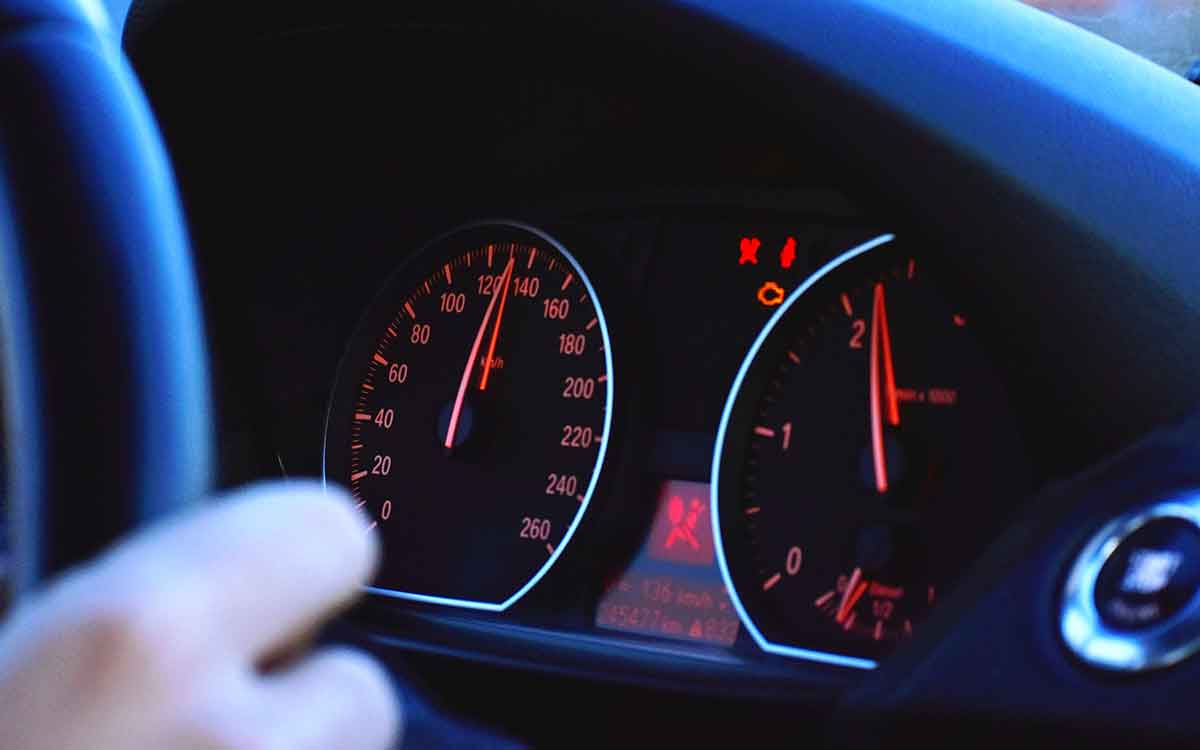If you’re like most drivers, you’ve probably wondered at some point whether pumping the brakes turns off dashboard lights. It’s a valid question; after all, if the brakes are working properly, why would pushing on them extinguish the warning signal? In this article, we’ll take a look at what happens when you pump the brakes and explore some possible explanations for those pesky dashboard lights.
So does pumping the break turn of dashboard lights? The answer to this question is a bit complicated. To understand why it’s first important to know how brakes work. When you press down on the brake pedal, hydraulic fluid is sent through the system to the brakes at each wheel. This fluid then exerts pressure on the brake pads, which in turn push against the rotors and slow down the wheels.
Now that we know how brakes work, let’s revisit the question at hand. In short, pumping the brakes does not turn off the dashboard lights. However, it can reset the system and allow the brakes to function properly again. So if your brakes are feeling a bit spongy or you see a dashboard light come on, go ahead and pump those brakes a few times. It might just give you the results you need.
Reasons why dashboard lights go off after pumping your brakes
There are numerous reasons why your dashboard lights might go off after you pump your brakes.
1. Air in the system
The first and foremost reason why your dashboard lights might go off when you pump your brakes is because of the air in the system. When there’s air in the brakes, it prevents the hydraulic fluid from flowing properly which can lead to a whole host of problems, including dashboard lights.
The hydraulic fluid acts as a cushion for the brakes, so when there’s air in the system, it can cause the brakes to feel spongy and less responsive. If you suspect that your brakes have air in them, be sure to have a professional check it out as soon as possible to avoid future problems.
2. Triggered sensor
Another possibility is that the dashboard light was triggered by a sensor that’s designed to do just that. In some cases, the sensor might be faulty and trigger the light even when there’s nothing wrong with the brakes.
If you think this might be the case, then it’s important to have the brakes checked out by a professional so they can diagnose and fix the problem.
3. Old brake fluid
Another reason your dashboard lights might go off after you pump your brakes is because of old brake fluid. Over time, brake fluid can become contaminated with water and other particles which can reduce its effectiveness.
When this happens, it can cause the brakes to feel less responsive and may even trigger a warning light on the dashboard.
4. Faulty sensor
Finally, another reason your dashboard lights might go off after you pump your brakes is because of a faulty sensor. The sensors in the brakes are responsible for sending information to the computer about the brakes’ status.
If a sensor is damaged or not working properly, it can cause the dashboard light to come on. In some cases, it may also cause the brakes to feel less responsive.
If you suspect that there may be an issue with one of your brake sensors, be sure to consult a professional to diagnose the problem
5. Brake fluid level
Another reason your brakes might not be working properly is because of the brake fluid level. If the brake fluid is low, it can cause the system to malfunction and trigger the dashboard lights.
This is because the fluid needs to be at a certain level for the brakes to work properly. So if you notice that your brake fluid is low, be sure to top it off as soon as possible.
6. Faulty brakes
Of course, it’s also possible that the brakes themselves are faulty. If this is the case, then pumping the brakes won’t do anything to fix the problem.
If you think your brakes might be faulty, it’s important to have them checked out by a professional as soon as possible. Driving with bad brakes is dangerous and can lead to accidents.
As you can see, there are several reasons why your dashboard lights might go off after you pump your brakes. If you’re not sure what’s causing the problem, it’s always best to consult a professional so they can diagnose and fix the issue.
Keep reading to find out what to do when your dash lights go off when you pump.
What to do when dash lights go off when you pump your brakes
If you are in a position where your dash lights go off when you pump your brakes, it is important to take the proper steps to ensure your safety as well as the safety of others on the road.
The first step is to identify the problem. As we mentioned before, there are several reasons why your dashboard lights might go off when you pump your brakes.
Once you have identified the problem, be sure to take the necessary steps to fix it. In some cases, you may be able to fix the problem yourself.
1. Check the brakes
The first thing you should do when your dash lights go off when you pump your brakes is to check the brakes. This includes checking the brake fluid level, as well as inspecting the brakes for any signs of wear and tear.
If everything looks okay, then it’s likely that the problem is with one of the sensors. In this case, you’ll need to have a professional check it out so they can determine what’s wrong and fix it.
2. Check for air in the system
If you suspect that there may be air in the system, be sure to have a professional bleed the brakes. This will remove any air from the system and help restore proper function.
You might be wondering how to check for air in your system. It is rather a simple process. First, you’ll need to locate the brake bleeder screw which is found on the brakes themselves.
Once you’ve located the screw, open it and press the brake pedal slowly. As you do this, you should see a stream of fluid coming out of the bleeder screw. If there are any bubbles in the fluid, then there is air in the system.
3. Check for leaks
Another thing you can do is check for leaks. This is important because leaks can cause the brakes to lose pressure and may even trigger the dashboard lights.
To check for leaks, simply inspect your brakes for any signs of fluid on the ground or on the brakes themselves. If you see any fluid, be sure to call a mechanic to take a look so they can fix the problem.
4. Replace old brake fluid
If the problem is with old brake fluid, then you’ll need to have it replaced. It is recommended that you replace your brake fluid every two years to ensure proper function.
When you replace the brake fluid, be sure to use fresh, clean fluid. This will help prevent any further problems down the road.
This should be done by a professional so they can properly flush the system and fill it with fresh fluid.
5. Replace faulty sensor
Finally, if the problem is with a faulty sensor, then you’ll need to have it replaced. This is typically a job for a professional, as they will have the necessary tools and experience to do it properly.
Final thoughts
As you can see, several things can cause your dash lights to go off when you pump your brakes. If you’re not sure what’s causing the problem, be sure to consult a professional so they can diagnose and fix the issue.
Do you have any experience with this? Let us know in the comments below!

